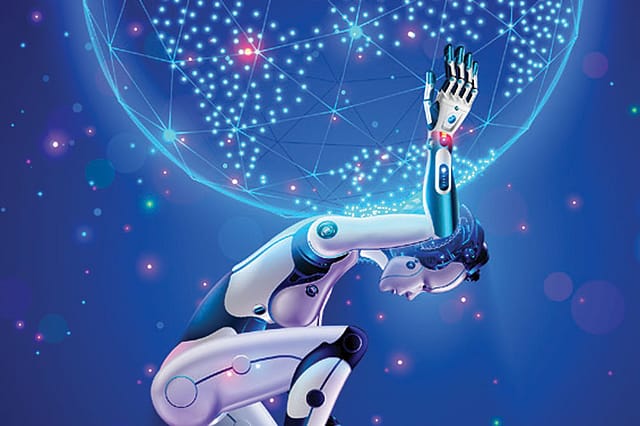The Humanisation of AI

IN A WORLD where technology's most ambitious projects are about making intelligence ultra-artificial, bringing a sense of the human to the hype runs the risk of being dismissed as a neo-Luddite lost in the cosmology of data. What is required when you stare at a super you, a version of yourself realised by the divinity of science, is submission—and the humility to follow the instincts of the alternative. That is what tech-absolutists demand from those who dare to diminish the future with questions. When revolutions are underway, to dilute the thrill by reading the text of liberation, of making the impossible possible, even if it means building a digital heaven on this wretched earth, differently is a crime against dreams. Curb your cautious enthusiasm please.
Still, tech-relativists are daring, if not dampening, the party. Even Elon Musk, the co-founder of OpenAI and now bent on buying it back, talks about the uses of regulation in a field that assumes technology alone can maximise human creativity, and adding a moral or ethical quotient to it only restricts progress. It's not a question about whether man should play master or servant, enabler or enslaved; it's about letting sunlight in upon the cult of the bot. It's about the challenges of being human, of acknowledging the indebtedness to reason, to the unruled empires of emotions.
Imran Khan: Pakistan’s Prisoner
27 Feb 2026 - Vol 04 | Issue 60
The descent and despair of Imran Khan
It's the theme of the humanisation of technology that resonated through the words of the prime minister in Paris, where he co-chaired the AI Action Summit with the French president. "AI is developing at an unprecedented scale and speed. And being adopted and deployed even faster. There is also a deep inter-dependence across borders. Therefore, there is a need for collective global efforts to establish governance and standards that uphold our shared values, address risks, and build trust… We must develop open-source systems that enhance trust and transparency… We are at the dawn of the AI age that will shape the course of humanity. Some people worry about machines becoming superior in intelligence to humans. But no one holds the key to our collective future and shared destiny other than us humans. That sense of responsibility must guide us," he said.
These are sane words, echoing the sentiments of not sceptics but enthusiasts with a conscience, and their number, even within the uppermost layer of the tech community, is growing. Two words stand out: trust and transparency. These are amongst the most overused words by the righteous lot, true, but they regain their essential sense of purpose when used in the context of unrestrained power, which is what tech-absolutists want in AI. Trust is what makes relationships smoother and more rewarding, and in technology, the autonomy of innovation should not exclude unpleasant questions. And transparency ensures trust, and it is transparency that those who see technology not as an enhancement of humanity but its domination dread the most. The best instincts of democracy should be applicable to AI too.
It's not accidental that China leads in AI, giving the US, the ultimate tech power, a complex. For the world's most prosperous surveillance society, human intelligence is anyway an impediment to progress. China has only limited use for the teachings of Marx or Mao when ironclad nationalism with a dash of Confucius will serve the ideological purpose. What it needs for the preservation of the state is the apparatus of Leninist-Stalinist vintage. Laboratory-made intelligence allows it, apart from DeepSeeking the world, to contain human intelligence, to strengthen the apparatus. It arms the paranoia in ways unimaginable to humans, especially those who still harbour doubts about the system. Human intelligence is the last frontier dictators and autocrats in curated democracies trust the least. Transparency and moral regulation will humanise AI, which doesn't mean minimised innovation.
Still, increasingly, whenever regulation is suggested, caution is mistaken for scepticism, as if being cautious is to betray the same mindset that once resisted—and eventually failed—computerisation and the internet. There are no parallels. AI seeks to demystify humans—death of the mystery that we attribute to the human mind. The Brothers Karamazov by ChatGPT may not rival the original as the very idea of originality is a data-construct in the AI era. The anti-AI alarmism about an impending digital monster by a Bay Area Frankenstein too doesn't make any sense. In the faceoff between you and your digital doppelganger, you have every reason to be a bit scared of your own possibilities. Once it was the ideologies. Tomorrow it could be the intelligence.
